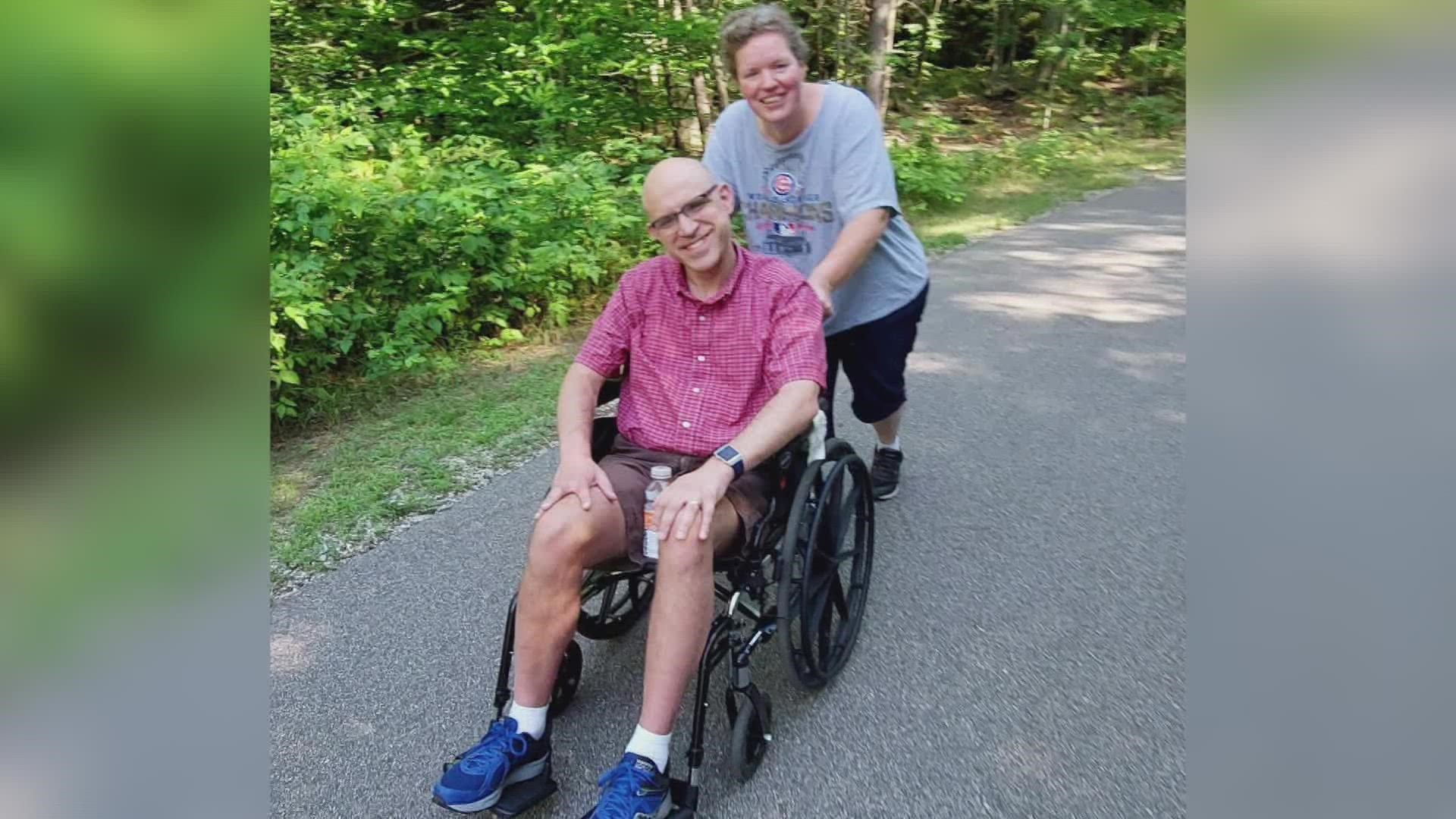Almost one year later, Dean Fritzemeier remembers when his family got COVID-19. Since then, their life has been turned upside down, but Fritzemeier's diagnosis was mild at first.
"I had fever, chills, (and I was just) very fatigued," he says.
His wife Karen, son and daughter all got better, but he still hasn't. He's visited multiple doctors in Michigan and other states, and many couldn't put their finger on why.
"(The doctors) finally said 'It's probably your COVID.' and (for) every doctor at first, it was like, 'We don't know what to do,'" Fritzemeier says. "They just kind of dismissed me... That was probably the hardest part, just being dismissed by the doctors."
For him, long-haul COVID means fatigue, brain fog and problems with his eyes. He's had trouble concentrating and even driving, and he had to leave work at Muskegon Community College a couple of months ago because his energy levels just couldn't keep up.
"Last September and October, I was very active," Fritzemeier says. "I went from, you know, I have a FitBit and I walked probably an average of seven miles a day from running, walking and playing outside... Now I sit in my Lazy Boy, watch TV and I sit on my phone. And I use a wheelchair to even go to the shortest distances."
He says his family and his faith keep him going on the toughest days.
"It's just hard to go from a guy who I was," Fritzemeier says. "(I was) always the person helping, (and now I'm) the person being helped has been a pretty hard thing... it's been an opportunity for my faith to work and to just remain strong. And I think it's a credit to the people around me that why I've been able to remain mentally as strong."
"At least I know I'm trying," Karen says. "I know I'm doing everything I possibly can to help him."
Even though it's been about a year and a half since the pandemic began, Karen says it's important to her that everyone takes COVID-19 seriously.
"It isn't about politics, it is about health. That's what really bothers me the most that people make it political," she says.
They each want everyone facing the same struggles to know that they're not alone. It's estimated that more than 30 percent of COVID-19 patients face long-haul symptoms.
"There's probably a lot of others out there like us," Karen says.
"Try to be as honest and consistent with the people around you. Don't try to pretend that you're okay. Just tell the truth of what what you're feeling because sometimes you want to pretend that everything is okay," Fritzemeier says. "And I wanted to pretend that everything was okay. But I just couldn't be myself."
Fritzemeier is taking some experimental medication from a doctor in California right now, and while it hasn't worked yet, they're hoping it does the trick soon.
►Make it easy to keep up to date with more stories like this. Download the 13 ON YOUR SIDE app now.
Have a news tip? Email news@13onyourside.com, visit our Facebook page or Twitter. Subscribe to our YouTube channel.

